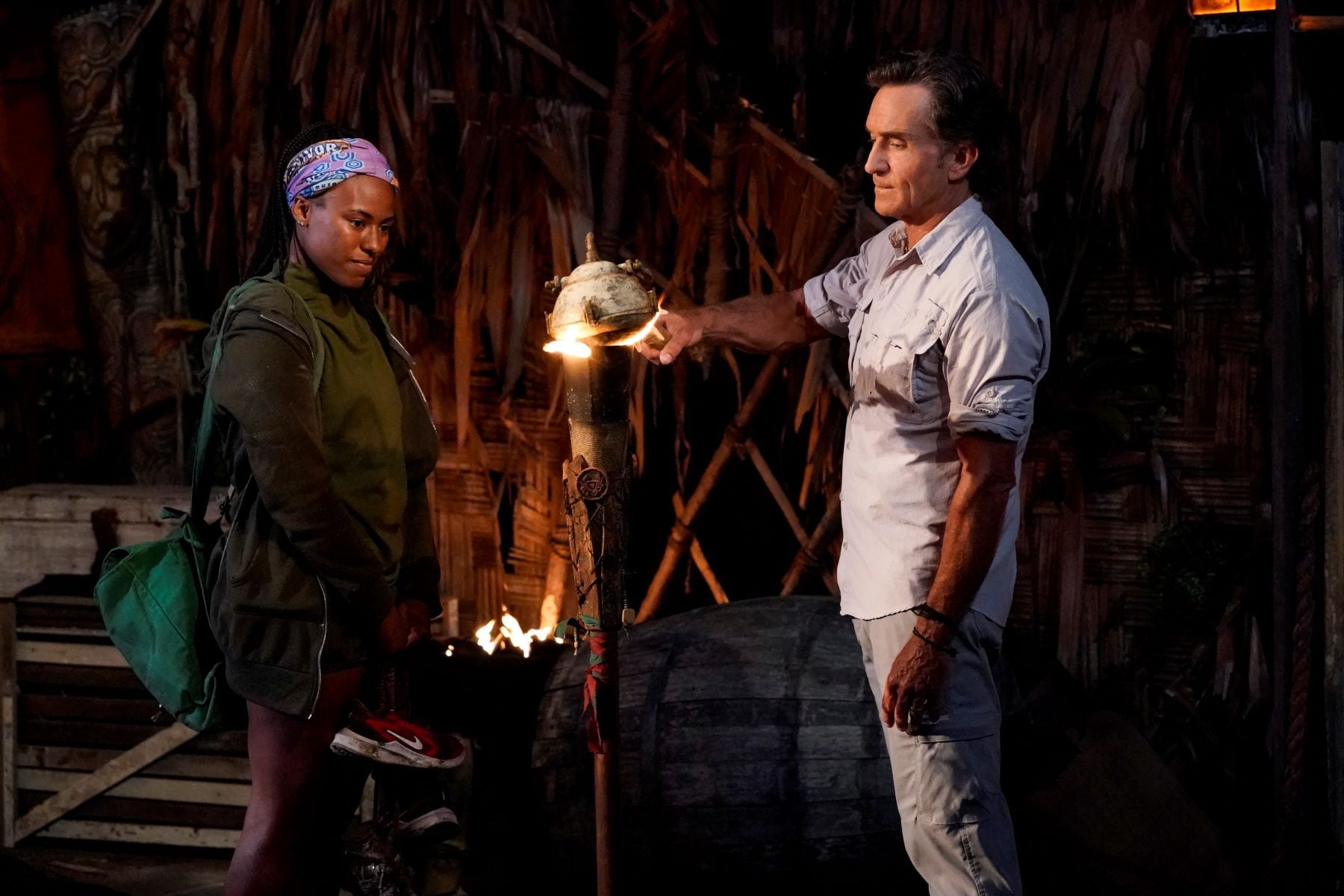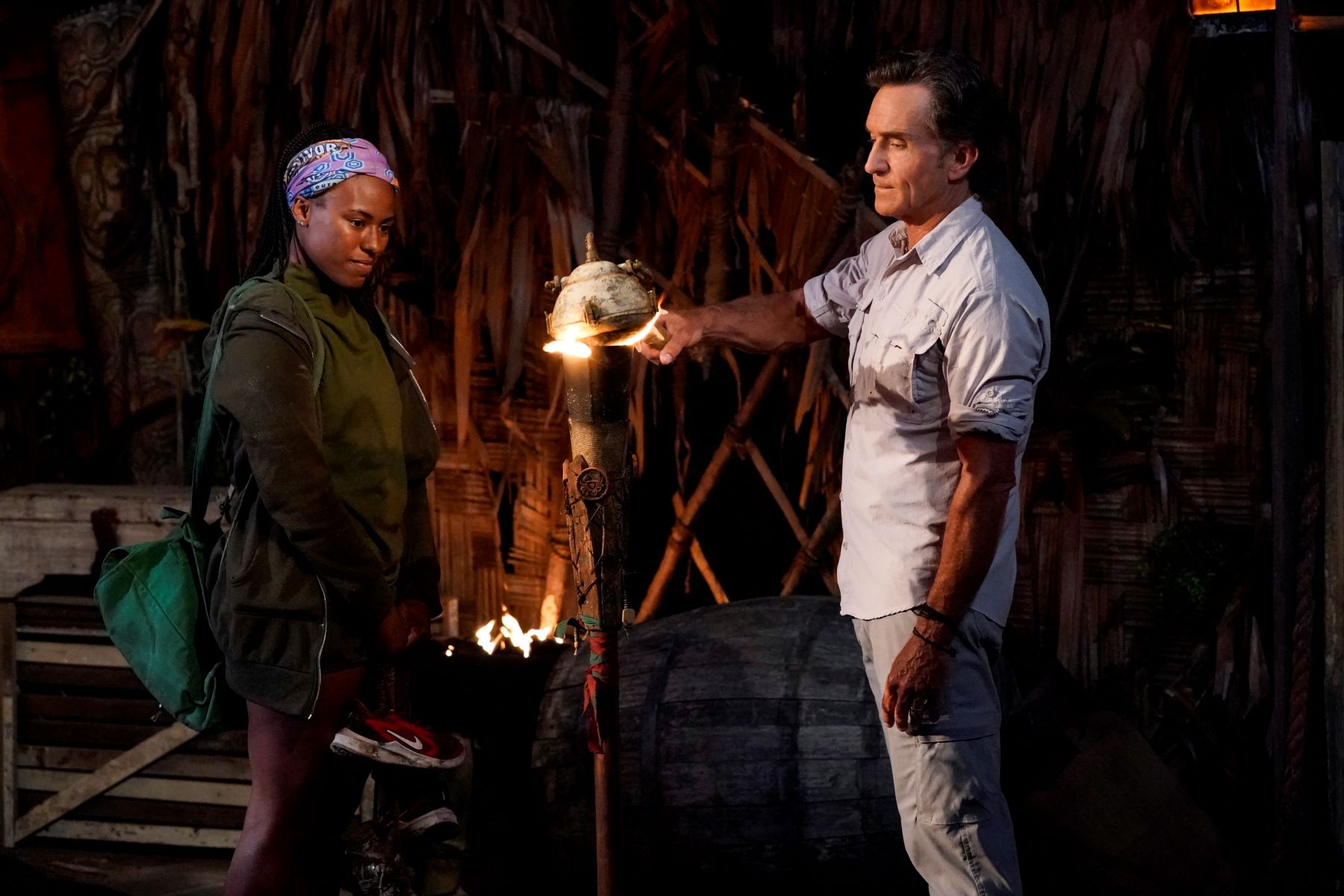
‘Survivor’: Chanelle Howell Reveals Fire Is ‘Inconsequential’ in Newer Seasons
One of Survivor host Jeff Probst’s many catchphrases includes, “In this game, fire represents your life. When your fire’s gone, so are you.” Fire is arguably the most important symbol in the game of Survivor. It’s historically been used to clean water, cook fish, and keep castaways warm during cold nights. However, according to one former player, fire isn’t nearly as important in recent seasons.

‘Survivor’ is now only 26 days long
Following the coronavirus (COVID-19) outbreak, Survivor had to rethink how the game is played. Producers needed to ensure the safety of the castaways while still staying true to the heart of the show.
After a year of the shutdown, Fiji opened its borders and allowed production to return for Survivor Season 41. They coordinated with the government regarding COVID-19 protocols, including a quarantine that cut into production time. So, producers had to shorten the length of the game. Instead of the standard 39-day schedule, Survivor Seasons 41 and 42 were 26 days long. And that schedule carried over to season 43.
Contestants now experience a fast-paced version of Survivor, where they have to earn their flint and food. It’s intense, to say the least, and a significant change from the previous Survivor seasons.
Chanelle Howell explains why fire isn’t important in the recent seasons of ‘Survivor’
Chanelle Howell, who finished in eleventh place and was the first jury member in Survivor Season 42, joined Rob Cesternino for his recap of Survivor Season 43 Episode 4 on Rob Has a Podcast. And during the podcast, Chanelle revealed a little-known fact about fire in the newer Survivor seasons.
“Here’s the thing, Rob, which, I don’t think people really understand, fire is really inconsequential in a 26-day game,” the Survivor Season 42 castaway shared. “You don’t have to boil your water, right? You can drink it straight from the well. You don’t have rice to boil. And if you don’t have fishing gear or if you don’t fish, then … We made fire on day two, and we never had fire again after that.”
Rob asked, “What about for heat?”
Chanelle answered, “You’re cold, sure, but unless you’re going to sleep at the fire and stoke it all night … Fire was away from our shelter. So, in my opinion, and I know a lot of people will agree with me that played, it’s the most inconsequential thing for a 26-day game.” And Rob commented, “Chanelle, you blew my mind.”
“At merge, we did [make fire] because it’s a thing to collect firewood because you want to go chit-chat,” Chanelle added. “And Jonathan [Young] also did catch fish for us. So I think on a tribe where someone is actively fishing, it makes sense. But for us, we had no expectation of food. We had no rice.”
Will ‘Survivor’ ever return to its 39-day schedule and bring back the importance of fire?
For the foreseeable future, fire will remain “inconsequential” in Survivor. Jeff Probst spoke with Entertainment Weekly before the Survivor Season 43 premiere, where he discussed the game’s length.
“Yes, the 26-day season is here to stay,” the host revealed. “This is our new game, and we are very excited about the future.”
Probst added, “From a big-picture point of view, this new era is here to stay. Twenty-six days, no food, meager supplies, penalties for losing, risky advantages, fast pace, small tribes. We like this version, and we think it has legs, so we’re going to work within that format and see where it goes.”
Survivor Season 43 airs Wednesdays at 8 p.m. ET on CBS.


